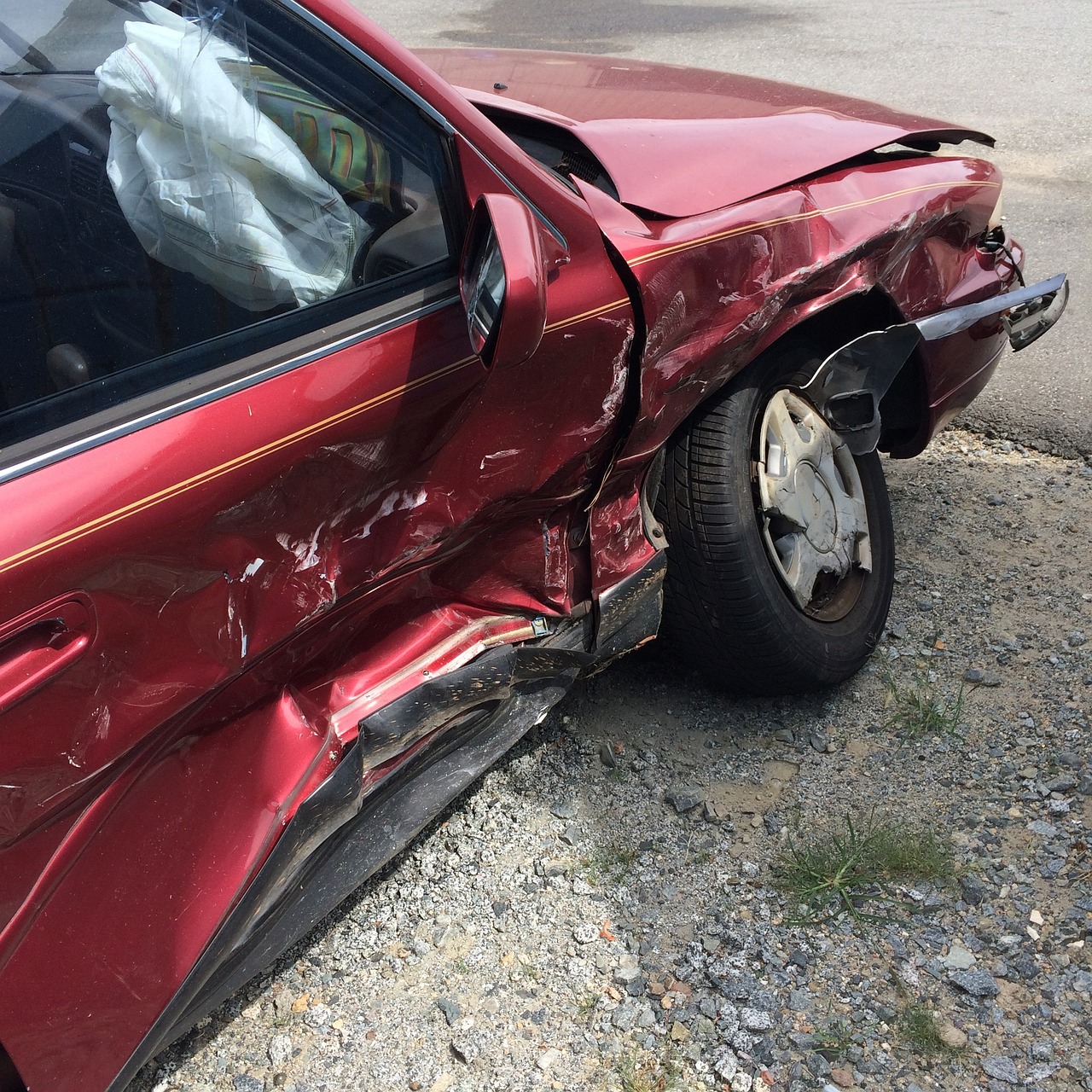Have you recently been involved in a car accident where it was clearly the other person’s fault? Perhaps you’re wondering if you can ask your lawyer to ensure that the responsible party receives a ticket for their actions. Well, the good news is that you definitely can! In this article, we will explore the possibilities of seeking legal action and holding the negligent party accountable for their role in the accident. By the end, you’ll have a clearer understanding of the steps you can take and why consulting with a lawyer is crucial in situations like these. So let’s dive in and find out more about your rights and options in this specific scenario.

Can I Ask My Lawyer For The Person To Get A Ticket If Car Accident Was Their Fault
If you have been involved in a car accident caused by someone else’s negligence, you may be wondering if you can ask your lawyer to ensure that the at-fault party receives a traffic ticket. Understanding fault in car accidents and the legal implications of traffic tickets can help you determine the best course of action. Consulting with a lawyer can also provide valuable guidance and assistance in navigating the complex legal process.
Understanding Fault in Car Accidents
Determining fault in a car accident is crucial in establishing legal liability and ensuring that the responsible party is held accountable for their actions. In general, the at-fault party is deemed responsible for the accident and any resulting damages. However, each jurisdiction may have its own laws and standards for determining fault.
Comparative Negligence
In some cases, multiple parties may share fault for a car accident. Comparative negligence is a legal concept that assigns a percentage of fault to each party involved in the accident. The total amount of compensation awarded to the injured party may be reduced based on their percentage of fault.
Pure Comparative Negligence
Under pure comparative negligence, an injured party can still recover damages even if they are found to be partially at fault for the accident. The compensation awarded to them is reduced based on their percentage of fault. For example, if you are found to be 20% at fault for the accident and the total damages are $100,000, you would be eligible to receive $80,000.
Modified Comparative Negligence
In some jurisdictions, there may be a modified version of comparative negligence in place. This means that an injured party can only recover damages if they are found to be less than a certain percentage at fault for the accident. Once their percentage of fault exceeds this threshold, they are no longer eligible to receive any compensation.
Legal Liability and Traffic Tickets
When it comes to car accidents, legal liability plays a crucial role in determining fault and responsibility. While traffic tickets are not direct proof of fault, they can serve as evidence in establishing liability. It is important to understand the legal consequences of a car accident and the significance of traffic tickets in the legal process.
Legal Consequences of a Car Accident
Being at fault for a car accident can have various legal consequences. These may include fines, penalties, increased insurance premiums, and potential criminal charges if the accident resulted in serious injuries or fatalities. Traffic tickets are often issued by law enforcement officers at the scene of the accident to the party responsible for the collision.
Importance of Traffic Tickets
Although traffic tickets are not absolute proof of fault, they can be used as evidence to support a claim of negligence or wrongdoing. They can indicate a violation of traffic laws, such as speeding, running a red light, or failure to yield, which can contribute to establishing fault in the accident. However, it is important to note that the absence of a traffic ticket does not necessarily mean that the other party is not at fault.
Traffic Tickets as Evidence of Fault
When pursuing a personal injury claim or seeking compensation for damages, traffic tickets can be valuable evidence to support your case. Your lawyer can use these tickets to demonstrate the other party’s negligence or disregard for traffic laws, strengthening your argument for fault and liability. However, it is important to gather additional evidence and witness testimonies to build a strong case.
Consulting with a Lawyer
If you have been involved in a car accident and believe that the other party was at fault, it is essential to consult with a lawyer to protect your rights and interests. A lawyer specializing in personal injury law can provide valuable guidance, represent your best interests, and help you navigate the legal process.
When to Seek Legal Advice
It is advisable to seek legal advice as soon as possible after a car accident, especially if you believe the other party was at fault. A lawyer can guide you through the necessary steps to protect your rights, gather evidence, and communicate with insurance companies on your behalf.
Importance of Legal Representation
Having legal representation is crucial when dealing with the complexities of a car accident case. A skilled lawyer can assess the details of your accident, determine liability, and help you understand your legal options. They will advocate for your rights, negotiate with insurance companies, and work towards obtaining fair compensation for your injuries and damages.
Exploring Legal Options
During your consultation with a lawyer, they will assess the specific details of your accident to determine if pursuing a traffic ticket for the at-fault party is a viable option. They will consider factors such as the severity of the accident, the available evidence, and the potential impact of a traffic ticket on your case. Based on this assessment, they will advise you on the best course of action to pursue.

Factors to Consider
Several factors should be taken into account when determining whether to pursue a traffic ticket for the at-fault party in a car accident case. These factors can influence the outcome of your case and the effectiveness of seeking legal assistance.
Severity of the Accident
The severity of the accident can impact the importance of pursuing a traffic ticket. If the accident resulted in significant injuries or property damage, obtaining a traffic ticket for the at-fault party may be more crucial in establishing liability and obtaining fair compensation.
Evidence Available
The availability and strength of evidence can significantly impact the success of pursuing a traffic ticket. If there is clear evidence, such as witness testimonies, surveillance footage, or accident reports, that supports your claim of fault on the part of the other party, it may be more feasible to pursue a traffic ticket.
Witnesses and Testimony
Eyewitness testimonies can provide valuable evidence in determining fault in a car accident. If there were witnesses to the accident who are willing to provide testimony supporting your claim, it can strengthen your case and increase the chances of the at-fault party receiving a traffic ticket.
Insurance Company Proceedings
The involvement of insurance companies can complicate the process of obtaining a traffic ticket for the at-fault party. Insurance companies often conduct their own investigations and may reach their own determinations of fault. It is important to have a lawyer who can navigate these proceedings and ensure your interests are protected.
Proving Fault in a Car Accident
To establish fault in a car accident, it is crucial to collect and present evidence that demonstrates the other party’s negligence or disregard for traffic laws. Your lawyer will work with you to gather the necessary evidence to build a strong case.
Collecting Evidence
Collecting evidence is an essential step in proving fault in a car accident. This evidence may include accident reports, eyewitness testimonies, surveillance footage, and expert witnesses. Your lawyer can guide you through this process and help you gather the evidence needed to support your claim.
Accident Reports
Accident reports filed by law enforcement officers can provide an objective account of the accident and any violations committed by the at-fault party. These reports may include details of traffic violations, statements from witnesses, and other relevant information that can support your case.
Eyewitness Testimonies
Eyewitness testimonies can be powerful evidence in proving fault in a car accident. If there were witnesses present at the scene who can provide accurate and credible accounts of what happened, their testimonies can strengthen your claim and increase the likelihood of the at-fault party receiving a traffic ticket.
Surveillance Footage
If the accident occurred in an area with surveillance cameras, obtaining footage of the accident can be immensely helpful in establishing fault. Surveillance footage can provide clear visual evidence of the other party’s actions leading up to the accident, which can support your claim for a traffic ticket.
Expert Witnesses
In some cases, expert witnesses may be necessary to provide specialized knowledge and insights regarding the accident. For example, accident reconstruction experts can analyze the scene, review evidence, and provide expert opinions regarding fault and causation. Your lawyer can help you determine if expert witnesses are necessary for your case and can assist in finding qualified experts.
The Role of Traffic Tickets
While traffic tickets play an important role in establishing fault in a car accident, it is essential to understand their purpose and limitations in the legal process.
Purpose of Traffic Tickets
Traffic tickets are issued by law enforcement officers to drivers who violate traffic laws. Their primary purpose is to enforce compliance with these laws and promote safe driving practices. They serve as a form of punishment and can also act as a deterrent to prevent future violations.
Issuing Traffic Citations
Law enforcement officers have the authority to issue traffic citations at the scene of a car accident if they determine that a violation of traffic laws contributed to or caused the incident. The citation serves as documentation of the violation and can potentially be used as evidence in establishing fault.
Usefulness in Determining Fault
While traffic tickets can be valuable evidence in determining fault, they are not absolute proof of liability. The court or insurance companies will consider other factors, such as additional evidence, witness testimonies, and expert opinions, in making a determination. However, a traffic ticket can significantly strengthen your case and increase the likelihood of the at-fault party being held accountable.
Can a Lawyer Help Get the At-Fault Party a Ticket?
The role of a lawyer in pursuing a traffic ticket for the at-fault party depends on various factors, such as the circumstances of the accident, the strength of the evidence, and the jurisdiction’s legal process. It is important to understand the lawyer’s role in this aspect and the strategies they may employ.
Understanding a Lawyer’s Role
A lawyer’s primary role is to advocate for your interests and protect your rights throughout the legal process. While they cannot directly control whether the at-fault party receives a traffic ticket, they can use their legal knowledge and expertise to build a strong case and present compelling arguments for the issuance of a ticket.
Legal Strategies to Pursue a Traffic Ticket
A lawyer can employ various legal strategies to pursue a traffic ticket for the at-fault party. They may gather and present evidence, interview witnesses, consult with accident reconstruction experts, and prepare persuasive arguments to support your claim of fault. They will navigate the legal process on your behalf, negotiating with insurance companies and potentially representing you in court.
Effectiveness of Legal Intervention
The effectiveness of legal intervention in obtaining a traffic ticket for the at-fault party can vary depending on the circumstances and jurisdiction. While a lawyer’s involvement can significantly increase the chances of a ticket being issued, the final decision rests with law enforcement officers, prosecutors, or the court system. Despite this, having a lawyer by your side can greatly enhance your chances of achieving a favorable outcome.

Benefits of Seeking Legal Assistance
Seeking legal assistance after a car accident can offer several benefits, ensuring that your rights are protected, and you receive fair compensation for your injuries and damages.
Legal Knowledge and Expertise
Lawyers specializing in personal injury law have extensive knowledge and expertise in handling car accident cases. They understand the intricacies of traffic laws, liability, and the legal process involved. Their experience allows them to assess the details of your case, identify the strengths and weaknesses, and develop a comprehensive legal strategy tailored to your circumstances.
Maximizing Compensation
A skilled lawyer will work diligently to maximize the compensation you receive for your injuries and damages. They have the negotiation skills and legal expertise necessary to advocate for your rights and ensure that insurance companies offer a fair settlement. If a settlement cannot be reached, they can represent you in court and fight for the compensation you deserve.
Navigating the Legal Process
The legal process can be complex and overwhelming, especially for those unfamiliar with the intricacies of personal injury law. By hiring a lawyer, you can entrust the legal proceedings to a professional who will guide you every step of the way. They will handle paperwork, communicate with insurance companies, and represent your interests in negotiations or court proceedings.
Peace of Mind
Dealing with the aftermath of a car accident can be stressful and emotionally draining. By hiring a lawyer, you can alleviate some of the burden and focus on your recovery. Knowing that a legal expert is handling your case and fighting for your rights can provide much-needed peace of mind during a challenging time.
FAQs
Can I request my lawyer to ensure the at-fault party receives a traffic ticket?
While you can request your lawyer to pursue a traffic ticket for the at-fault party, the decision ultimately rests with law enforcement officers, prosecutors, or the court system. Your lawyer can use their legal knowledge and expertise to build a strong case and present persuasive arguments for the issuance of a ticket.
Will obtaining a traffic ticket help my case?
Obtaining a traffic ticket can significantly strengthen your case by providing evidence of the other party’s negligence or violation of traffic laws. It can support your claim for fault and liability, enhancing your chances of obtaining fair compensation for your injuries and damages.
What if the at-fault party disputes the ticket?
If the at-fault party disputes the ticket, it may complicate the legal process. Your lawyer will gather additional evidence, interview witnesses, and present compelling arguments to counter their dispute. The final decision rests with the court system, which will carefully evaluate all the evidence before making a determination.
How long does it take to prove fault in a car accident?
The time it takes to prove fault in a car accident can vary depending on various factors, such as the complexity of the case, the availability of evidence, and the jurisdiction’s legal process. Some cases can be resolved through negotiations with insurance companies, while others may require court proceedings, which can prolong the process.
Can I handle the legal proceedings without a lawyer?
While it is possible to handle car accident legal proceedings without a lawyer, it is highly recommended that you seek legal representation. A lawyer specializing in personal injury law has the knowledge, expertise, and negotiation skills necessary to protect your rights and navigate the complex legal process effectively. Their guidance can greatly enhance your chances of achieving a favorable outcome.
Legal Consultation
When you need help from a lawyer call attorney Jeremy D. Eveland, MBA, JD (801) 613-1472 for a consultation.
Jeremy Eveland
17 North State Street
Lindon UT 84042
(801) 613-1472